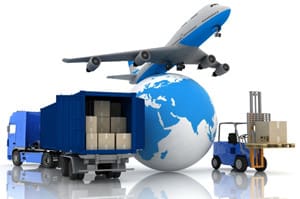 Note: Today’s post is part of our “Editor’s Choice” series where we highlight recent posts published by our sponsors that provide supply chain insights and advice. This article is from Kirk Carlsen, Director of PLM Product Marketing at Oracle, and looks at the importance of IoT.
Note: Today’s post is part of our “Editor’s Choice” series where we highlight recent posts published by our sponsors that provide supply chain insights and advice. This article is from Kirk Carlsen, Director of PLM Product Marketing at Oracle, and looks at the importance of IoT.
During my time as a professional cyclist, I learned that the more information and technology I could leverage, the faster I rode. As technology improved, the data and insights I collected from daily training optimized my performance. I monitored things like heart rate, power, and nutrition and incorporated all of it into my routine. The more I analyzed and integrated this data into my training regimen, the better I began to understand how sensitive each individual aspect of my lifestyle was and how information delivered key indications of my fitness. In a sport where races are won and lost sometimes by inches, any increase in my fitness, even if it was only one percent, could mean the difference between winning and losing. If I could have connected my entire body to sensors that delivered real-time insights to increase performance, I would have.
In athletics, I was just touching the surface of how to incorporate information technology into understanding human potential. Luckily for business, similar enterprise transformations are possible today by using key technologies such as the Internet of Things (IoT). With the visibility and analytics delivered by connected devices, companies can make the right decisions at the right time, safeguarding profitability and customer service. And not unlike cycling, small percentages in improvement for a business could mean the difference between establishing competitive advantage or dropping behind the pack. So, here are six key reasons why I think organizations across every industry need to adopt IoT into their digital transformation strategy.
- Increase visibility across siloed business functions to improve business maturity
With billions of connected devices transmitting potentially valuable information, you can begin leveraging market awareness and measuring performance within your organization. With the evolution of digital business, operating models are shifting to derive business value and competitive differentiation from visibility and predictive capabilities. The digital journey begins by integrating these once siloed functions into end-to-end driven complete architectures. IoT is the digital thread that brings these functions together.
- Drive innovation with data analytics
Connected devices and new sources of data streams are driving companies to reevaluate their current business models and adopt entirely new operating models. IoT breaks down the barrier between the customer and the organization. With data provided by connected devices, and by cycling that data back into the business, businesses can make intelligent business decisions that start with service and drive new innovations that meet expectations.
To read the full article, click HERE.
















 Many companies were in the midst of digitally transforming their supply chain when the Convid-19 pandemic hits. During that time, with great volatility, many companies struggled to keep pace with increasing customer expectations around delivery on-time.
Many companies were in the midst of digitally transforming their supply chain when the Convid-19 pandemic hits. During that time, with great volatility, many companies struggled to keep pace with increasing customer expectations around delivery on-time.


